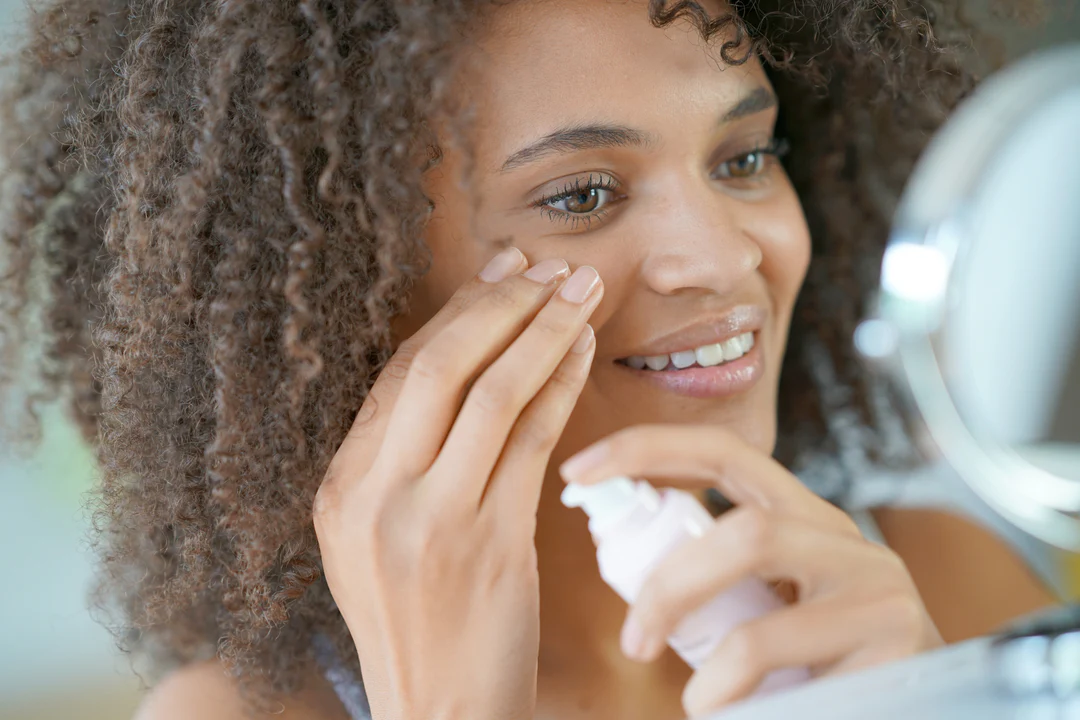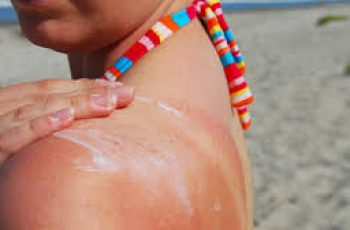Can Butylene Glycol be used with Retinol?
It’s undeniable that the beauty industry loves a trendy ingredient, especially when it has a ton of scientific evidence behind it, like in the case of Butylene Glycol. Have you never heard of it? Don’t worry, because you’ll have a better understanding of how this ingredient works and what benefits you can expect when using it in your daily life. Of course, we can’t forget to see if you can use Butylene Glycol with Retinol.
So, let’s get started to learn more about this most popular skincare ingredient, Butylene Glycol. If you want to learn a little bit about Retinol and its benefits, you can learn more about it on The Beauty Insiders.
What is Butylene Glycol?
Butylene Glycol, also known as BG, is an organic alcohol extracted from petroleum. It usually comes in liquid form and is found in a variety of skincare products, from cleansers to moisturizers to hair products. It is praised for its many benefits because it can play a variety of roles in skincare formulas. It can act as an emollient, humectant, and solvent. Butylene Glycol is also considered safe for daily use and is a great alternative to the more well-known ingredient Propylene Glycol, which has earned a rather controversial reputation.
If you want to learn more about the multi-tasking super ingredient Butylene Glycol, you can find it on Skin School.
What is Butylene Glycol Used For?
As I mentioned earlier, Butylene Glycol is a multi-functional ingredient that offers a variety of benefits to the skin. Some of the most important reasons are why you’ll find it in such a wide range of skincare formulas.
Helps Products Absorb Quickly into the Skin – Butylene Glycol is able to dissolve buildup and residue from pollutants and product formulas on the surface of the skin. By clearing this residue from the surface of the skin, other skincare products used can be absorbed faster and work faster.
Pulls Water into the Skin – Butylene Glycol has moisturizing properties that attract and lock in moisture from the air around the skin. You’ll get a plump, radiant, and youthful complexion.
Acts as an emollient – This allows it to form a protective barrier on the surface of the skin, preventing moisture from being lost throughout the day. This keeps your skin soft and in tip-top condition.
These are the main uses for Butylene Glycol. As you can see for yourself, it’s a very useful ingredient that can be used on almost all skin types due to its low irritation profile. Since it is derived from petroleum, I recommend consulting a doctor or medical professional before adding it to your daily routine.
Can Butylene Glycol be used with Retinol?
Yes, don’t let the scary-sounding name fool you, using Butylene Glycol with Retinol is considered completely safe. With BG’s moisturizing and nourishing properties, you’ll find that it hydrates and strengthens the skin barrier, ensuring it is able to protect itself from harsh free radicals. Signs of dryness and irritation, which are often side effects of retinol, are also counteracted.
To get the most out of each ingredient, make sure to use them correctly and in the right order. Not only will this allow your retinol product to penetrate and work its magic by boosting collagen production while reversing signs of aging, but it will also lock moisture to the surface of your skin, allowing it to function properly and remain at its healthiest.
Why Should You Avoid Butylene Glycol?
Butylene Glycol should only be avoided if you are prone to increased sensitivity or have a very sensitive skin type. These skin types often experience irritation, rashes, and itching, which can be made worse if you continue to use Butylene Glycol without knowing it. So you don’t have to worry, I strongly recommend that you consult a dermatologist or trained professional for advice on the best formula for daily use, especially if you have a sensitive skin type.
Is Butylene Glycol Good for Face?
Of course, for almost all skin types, Butylene Glycol is an effective and impressive ingredient to incorporate into your daily routine. With so many benefits and a variety of roles it can play, you’ll find Butylene Glycol to be an impressive all-around product that achieves results on your complexion. Another feature of this clever ingredient is its ability to stabilize other skincare formulas, which means it works effectively with powerful active ingredients like Vitamin C, Glycolic Acid, Salicylic Acid, and Retinol.
Just a reminder: before applying any new product or ingredient to your face, you should always do a 24-hour patch test on your skin. This will help you avoid unnecessary irritation and allergic reactions.
Is Butylene Glycol the Same as Glycolic Acid?
No, although I can understand the confusion since the names are very similar. Glycolic acid is a common member of the alpha hydroxy acid (AHA) family. It is well known for its effective exfoliating properties, ensuring that the build-up of dead skin cells, dirt, debris and impurities are removed. These issues often lead to breakouts, acne, signs of aging and a dull complexion. You will find that glycolic acid is also very effective, and if used incorrectly, it can strip your skin of the important oils it needs to stay healthy. As you now understand, glycol works in a completely different way. Instead of exfoliating, it replenishes moisture to the skin.
Is Butylene Glycol Non-Comedogenic?
Yes and no, it is considered a very highly comedogenic ingredient, which means that it can clog pores, leading to worse acne and breakouts such as blemishes and blackheads. However, if used correctly, the moisturizing properties of Butylene Glycol can be beneficial for those with oily and acne-prone skin. However, pay close attention to how your skin feels.
Here is more information on using Butylene Glycol and Retinol. If you still have any questions, feel free to visit and follow us on Instagram.
DQH Knowledge drop: In your 20s, your skin cell turnover decreases. (Cell turnover is a key component in keeping your skin youthful.) You know what else slows down? Your collagen production. Starting in your 20s, collagen decreases by about 1 percent per year. Should you want to prevent fine lines and wrinkles, start by eliminating behaviors that contribute to premature aging. “If it’s bad for you, it’s bad for your skin,” says dermatologist Michel Somenek.
“Cigarette smoking reduces blood flow to the skin and causes premature wrinkling and a dull skin texture. Making the repeated pursed motion to inhale can also cause smoker’s lines. Alcohol and recreational drugs are toxins for the skin that damage its cellular structure and DNA,” Somenek tells us. “The faster you eliminate vices while you are young, the better chance your skin and body have to recuperate.” Also, adopting an anti-aging routine in your 20s is key. After all, the best offense is a good defense. We spoke to Somenek and experts Joshua Ross and Audrey Kunin to find out more.
Keep reading for the best anti-aging products for your 20s, according to skincare professionals.
Sunscreen
“We all know that the sun is the number one cause of skin aging and starting the prevention in your 20s is very important,” Ross says. “The majority of your sun damage won’t start to appear until you’re in your 30s, so don’t wait until you see it surface or you’ll be behind the curve. Stay ahead of it with a good-quality zinc-based sunscreen worn daily.”
Farmacy Green Defense Daily Mineral Sunscreen
An invisible sunscreen with SPF 30, plus botanical extracts meant to protect skin with tons of antioxidants. Bonus: It’s clean and fine to use under makeup.
Bareminerals Complexion Rescue™ Tinted Moisturizer Broad Spectrum SPF 30
Although we recommend you use your SPF and moisturizer separately, we also understand moments when you don’t have time or energy for that extra step. For those times, this bareMinerals moisturizer is a great thing to have on hand.
Vitamin C Serum
“A great introduction to anti-aging is to start with a vitamin C serum in your morning skincare routine,” Ross says. “It’s a powerful antioxidant that will neutralize free radicals and brighten the skin.” He adds that it’s a great way to counteract the effects of the sun’s harmful rays, which, as previously mentioned, are among the biggest causes of premature aging.
Drunk Elephant C-Firma™ Vitamin C Day Serum
The Drunk Elephant C-Firma is a lightweight serum that promises to give skin a glow by combining the brightening powers of vitamin C with ferulic acid, l-ascorbic acid, and vitamin E. The included sodium hyaluronate is meant to replace hydration loss, so you shouldn’t have to deal with any irritation.
Sunday Riley C.E.O. Rapid Flash Brightening Serum
This potent serum is jam-packed with vitamin C (15 percent, to be exact), which means it’s a potential superstar at both brightening skin and dousing it in antioxidants.
Peptides
Using peptides on your skin has many benefits, says Somenek. “The skin barrier is what defends the body against pollution, UV rays, bacteria, and toxins. It can be damaged by several everyday factors. Using topical peptides aids in building a stronger barrier,” he says. “Peptides comprise elastic fibers, which are a type of protein. These fibers help to make skin appear taut and firm. Peptides can also help repair damaged skin, relieve inflammation, and even out skin tone. Some peptides can kill acne-causing bacteria that is common in 20-somethings.”
Kunin agrees, saying, “Peptides are an excellent entry point for supporting collagen.” She recommends looking for face and eye treatments that contain these collagen-boosting powerhouses.
Charlotte Tilbury Magic Eye Rescue Cream
This Charlotte Tilbury super-emollient eye cream has a base of coconut oil and shea butter (read: it’s incredibly hydrating). Botanicals plus peptides are meant to help reduce dark circles and boost collagen, respectively.
This creamy moisturizer serves up potent collagen-boosting peptides and pycnogenol, and antioxidant-rich vitamin C. “Instead of sitting on top of the skin, peptides penetrate the outer layer so they go deep. The ‘signals’ they send tell the cells to produce elastin and collagen, which are needed for youthful-looking skin,” explains Somenek.
At-Home Peel Pads
Remember that skin cell turnover fiasco we talked about earlier? One way to help support it is by exfoliating. “Exfoliation is important to help keep skin fresh and luminous,” Kunin says. She recommends using at-home peel pads as an easy and effective way to exfoliate.
“The goal in your 20s is to fight the slowing pace of cell turnover. It is wise to use products that gently exfoliate, yet still remove oil and other impurities. Products that have Alpha Hydroxy Acids (AHA) or Beta Hydroxy Acids (BHA) are a good choice.”
According to Somenek, you should only exfoliate two to three times a week. “People of all ages are guilty of over-exfoliating and that can be too much of a good thing,” he says.
Dermadoctor Kakadu C Intensive Vitamin C Peel Pad
A few swipes of this Derma Doctor powerful peel pad promise to leave your skin glowing and smooth, thanks to the seven (yes, seven) types of chemical exfoliants, including AHA and BHA. It also contains vitamin C via Kakadu plum extract for added brightening and antioxidant protection.
KEY INGREDIENTS Kakadu plum extract is sourced from the Kakadu plum, a fruit grown in northern Australia. It contains vitamin C, which restores the skin’s natural barrier, increases collagen production, and soothes irritation.
Dr. Dennis Gross Skincare Alpha Beta® Universal Daily Peel Pads
These are the gold standard of peel pads, with a cult following and over 900 five-star reviews on Sephora. They’re easy to use and contain a blend of anti-aging exfoliating acids.
Emollient Night Cream
“In your 20s, you need to start upping the hydration in your skincare routine. You may have been cautious of over-moisturizing because of acne in your teens, but as you enter your 20s, your skin transitions and becomes drier,” Ross says. “I recommend an emollient night cream added into your evening skincare regimen.”
“Twenty-somethings need to make sure that they are not using creams that will clog their pores and cause excess oil production,” says Somenek. Opt for non-comedogenic products.
Cerave Skin Renewing Night Cream
One great choice is the CeraVe Skin Renewing Night Cream, which is a non-comedogenic night cream that leaves skin soft and glowy. It combines the moisturizing powers of ceramides and hyaluronic acid.
RoC Retinol Correxion Max Hydration Creme
“The best night cream ingredients contain retinol, benzoyl peroxide, and/or salicylic acid or hyaluronic acid. The goal is to moisturize, yet remove excess oil,” says Somenek. This Roc Retinol Correxion cream fits the bill as it contains both hyaluronic acid and retinol so it promises to moisturize while also being non-comedogenic.



